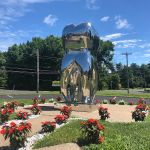How to Address Chronic Oral Health Issues in Older Adults
As we age, taking care of our oral health becomes more important than ever. Unfortunately, older adults often face unique dental challenges that can impact their overall health and quality of life. From dry mouth to gum disease, chronic oral health issues can lead to discomfort, difficulty eating, and even more serious health problems. But don’t worry – these issues can be addressed with the right care, guidance, and preventive measures. In this article, I will explore the most common oral health problems older adults face and offer practical solutions to help manage them effectively.
1. Understanding the Common Oral Health Issues in Older Adults
Oral health is essential to maintaining overall health, yet many older adults suffer from various chronic dental conditions that often go untreated. The aging process, along with certain lifestyle habits, medications, and medical conditions, can all contribute to oral health issues. Let's take a look at some of the most common problems that older adults experience:
- Dry Mouth (Xerostomia): One of the most prevalent oral health issues in older adults is dry mouth. It occurs when the salivary glands produce insufficient saliva, leading to discomfort, difficulty swallowing, and an increased risk of tooth decay.
- Gum Disease: Gum disease, or periodontal disease, is another common issue in older adults. It can cause swollen, bleeding gums, and if untreated, it may lead to tooth loss.
- Tooth Decay: Tooth decay isn’t just a childhood problem. Older adults often experience cavities due to a combination of dry mouth, decreased saliva production, and previous dental neglect.
- Tooth Loss: Many older adults suffer from tooth loss due to periodontal disease, tooth decay, or trauma. Missing teeth can make it challenging to eat a balanced diet and affect overall self-esteem.
- Oral Cancer: The risk of oral cancer increases with age, particularly among individuals who smoke or drink alcohol. Regular screenings are essential for early detection.
2. How Dry Mouth Affects Oral Health
Dry mouth is one of the most common complaints among older adults and can have a significant impact on oral health. Saliva plays a vital role in the mouth, helping to neutralize acids, wash away food particles, and prevent tooth decay. Without adequate saliva, the mouth becomes more susceptible to bacteria and infection, leading to an increased risk of cavities and gum disease.
Some of the causes of dry mouth in older adults include medications (many commonly prescribed to seniors, such as antihistamines, decongestants, and blood pressure medications), chronic health conditions (like diabetes), and changes in hormone levels due to aging. If left untreated, dry mouth can cause discomfort, difficulty speaking and swallowing, and even bad breath.
To combat dry mouth, I recommend staying hydrated, chewing sugar-free gum to stimulate saliva production, using saliva substitutes, and avoiding alcohol or caffeine, which can exacerbate dryness. Regular dental checkups are also crucial for identifying and addressing any issues early on.
3. Preventing and Treating Gum Disease
Gum disease is a leading cause of tooth loss in older adults, but it’s largely preventable with proper oral care. Gum disease begins when bacteria build up along the gum line, causing inflammation and irritation. If left untreated, it can progress to periodontitis, which may result in tooth loss and other serious complications.
The best way to prevent gum disease is through regular brushing and flossing to remove plaque and bacteria from the teeth and gums. A soft-bristled toothbrush and fluoride toothpaste are ideal for gentle yet effective cleaning. Regular dental visits are also crucial for professional cleanings and early detection of gum disease.
For those already experiencing gum disease, a dentist may recommend more intensive treatments, such as scaling and root planing, to clean the teeth beneath the gum line. In some cases, gum surgery or antibiotics may be necessary to address severe cases of gum disease.
4. Managing Tooth Decay in Older Adults
Tooth decay is a common issue among older adults, especially for those with dry mouth or a history of poor oral hygiene. In addition to causing cavities, tooth decay can contribute to tooth sensitivity, discomfort, and infection. It’s especially important for older adults to take proactive steps to prevent cavities and maintain a healthy smile.
Regular brushing with fluoride toothpaste, flossing, and using mouthwash can help protect against tooth decay. A balanced diet rich in vitamins and minerals is also crucial for maintaining healthy teeth. Avoiding sugary snacks and beverages can significantly reduce the risk of cavities, as bacteria thrive on sugar.
For individuals who are prone to cavities, dental sealants or fluoride treatments may be recommended to provide extra protection. If a cavity does form, early intervention is key to preventing further damage.
5. Dealing with Tooth Loss and Dentures
Tooth loss is a reality for many older adults, but fortunately, there are solutions to restore functionality and improve quality of life. Dentures, bridges, and dental implants are all effective options for replacing missing teeth. Dentures are the most common solution, but dental implants have become increasingly popular due to their natural look and feel.
For those who wear dentures, it’s important to practice good denture care. Cleaning dentures regularly, removing them at night, and visiting the dentist for adjustments can help prevent discomfort and gum irritation.
In some cases, dental implants or bridges may be a better solution for individuals looking for a permanent replacement. These options can restore bite strength, improve speech, and increase overall comfort when eating and talking.
6. The Importance of Regular Dental Checkups
The best way to address and prevent chronic oral health issues in older adults is through regular dental checkups. A dentist can spot problems early, such as gum disease, tooth decay, or oral cancer, and provide the necessary treatment before they become more serious. Regular exams also allow for professional cleanings, which are essential for maintaining oral health and preventing the buildup of plaque and tartar.
It’s essential to visit a dentist at least once a year, or more frequently if you have specific dental concerns or medical conditions that require special care. A dentist can also help educate patients on proper brushing, flossing, and diet habits to ensure long-term oral health.
Conclusion: Taking Action for Better Oral Health
Addressing chronic oral health issues in older adults requires a combination of preventive care, early detection, and the right treatments. By maintaining good oral hygiene, seeking professional dental care regularly, and being proactive about common issues like dry mouth and gum disease, older adults can significantly improve their oral health and enjoy a better quality of life. Whether it’s managing tooth decay, preventing tooth loss, or treating gum disease, taking action today can help preserve your smile for years to come.
OLD Keywords-8:SEO Title: How to Address Chronic Oral Health Issues in Older AdultsSEO Keywords: chronic oral health issues, older adults dental care, gum disease prevention, dry mouth in seniors, tooth decay in elderlySEO Description: Learn how to address chronic oral health issues in older adults, including dry mouth, gum disease, tooth decay, and tooth loss. Discover practical solutions for maintaining a healthy smile in senior years.






 Leonard I Nunnally III DDS4.0 (107 review)
Leonard I Nunnally III DDS4.0 (107 review) Premier Dental, Dr. Craig Aronson4.0 (516 review)
Premier Dental, Dr. Craig Aronson4.0 (516 review) HealthPartners Dental Specialty Center Woodbury - Lake Elmo3.0 (38 review)
HealthPartners Dental Specialty Center Woodbury - Lake Elmo3.0 (38 review) Ideal Smile Dental - Bensalem4.0 (602 review)
Ideal Smile Dental - Bensalem4.0 (602 review) Marshall H Titus, DDS0.0 (0 review)
Marshall H Titus, DDS0.0 (0 review) Fair Lawn Periodontics & Dental Implants4.0 (191 review)
Fair Lawn Periodontics & Dental Implants4.0 (191 review) The Importance of Oral Health Education During Pregnancy for a Healthy Pregnancy
The Importance of Oral Health Education During Pregnancy for a Healthy Pregnancy Best Tips for Brushing Your Teeth Properly for Healthy Gums: Essential Techniques for Oral Health
Best Tips for Brushing Your Teeth Properly for Healthy Gums: Essential Techniques for Oral Health Why Skipping Dental Checkups Can Lead to Bigger Oral Health Problems
Why Skipping Dental Checkups Can Lead to Bigger Oral Health Problems Advantages of Porcelain Dental Restorations
Advantages of Porcelain Dental Restorations How Can Diabetes Cause Tooth and Gum Problems? Preventing and Managing Oral Health Issues
How Can Diabetes Cause Tooth and Gum Problems? Preventing and Managing Oral Health Issues Healthy Habits for Promoting Good Oral Health and Hygiene: Tips for a Healthy Smile
Healthy Habits for Promoting Good Oral Health and Hygiene: Tips for a Healthy Smile